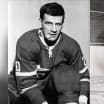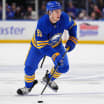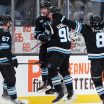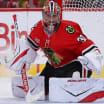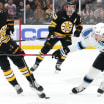The six players, chosen by a panel of NHL general managers, NHL hockey operations staff, NHL.com writers, and on-air talent from NBC, Sportsnet and TVA Sports, won a combined 13 Stanley Cup championships from 2010-19.
"It's a great honor," Kane said at 2020 Honda NHL All-Star Weekend in St. Louis. "Ten years is a long time to be a good player and it's a tribute myself being consistent but also the teams I've been playing on. I've played on some amazing teams. I'm very fortunate that some of our playoff runs, five conference finals, three Stanley Cups, some great years in there too. So, yeah, it's definitely a big honor."
Crosby, a center, and Fleury, a goalie, won with the Pittsburgh Penguins in 2016 and 2017. Kane, a forward, and Keith, a defenseman, were part of the Chicago Blackhawks' championship teams in 2010, 2013 and 2015.
Doughty, a defenseman, won with the Los Angeles Kings in 2012 and 2014, and Ovechkin, a forward, won with the Washington Capitals in 2018.
"Ovi, Crosby, it would be a fun line to play on," Kane said.
The All-Decade Second Team is forwards Evgeni Malkin (Penguins), Patrice Bergeron (Boston Bruins) and Steven Stamkos (Tampa Bay Lightning); defensemen Erik Karlsson (San Jose Sharks) and Zdeno Chara (Bruins); and goalie Henrik Lundqvist (New York Rangers).
For insight into the First Team, NHL.com spoke to former NHL forwards and current NHL Network analysts Ryan Callahan and Scott Hartnell, who played against the six throughout the decade.
Hartnell played for the Philadelphia Flyers in 2010, when Kane scored the Stanley Cup-clinching overtime goal in Game 6. Callahan was on the Tampa Bay Lightning in 2015, when they lost to the Blackhawks in the Stanley Cup Final.

